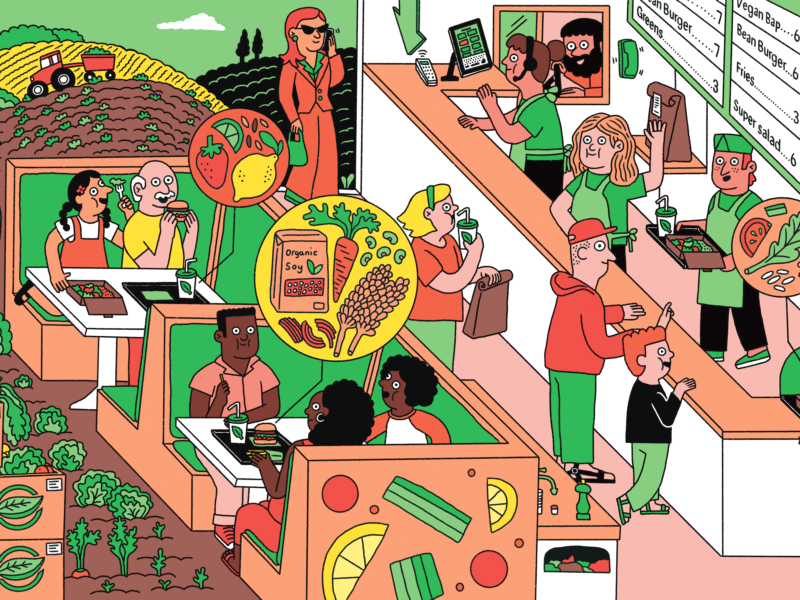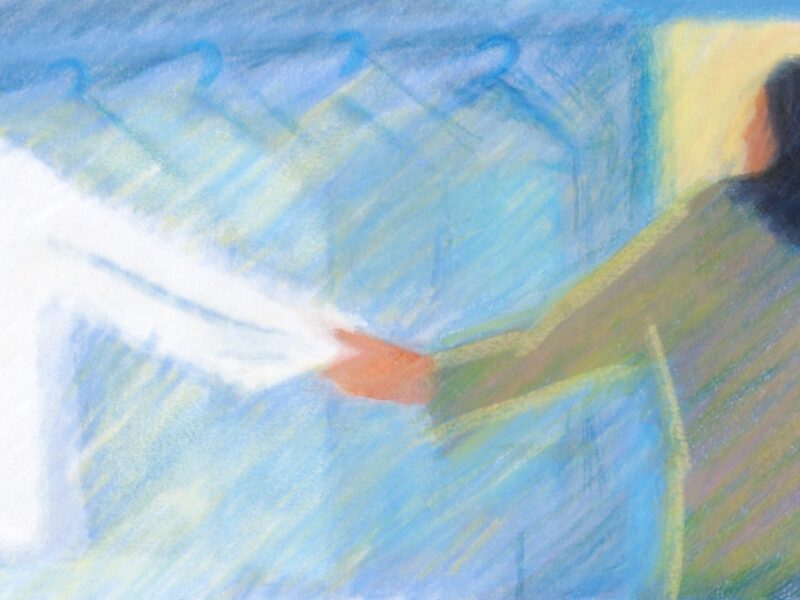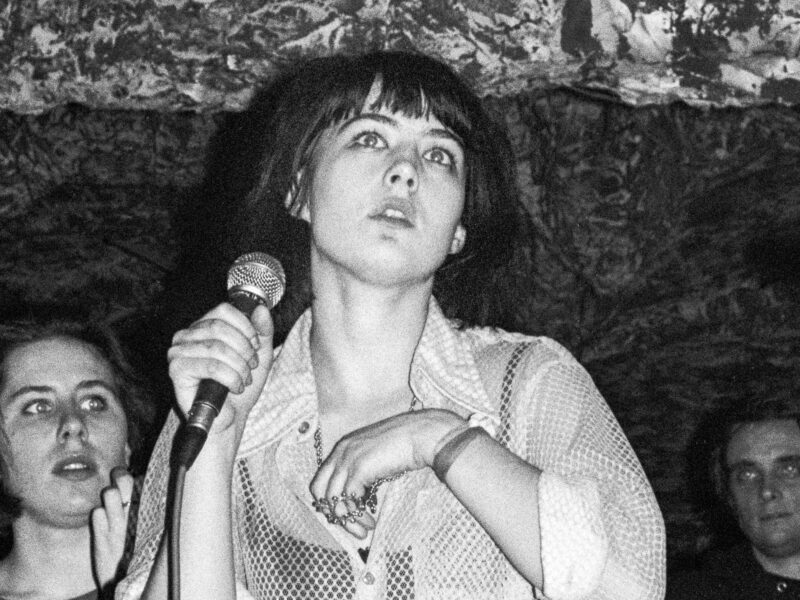Canadians tend to see the extremism expressed by the truckers and their supporters as a fringe movement imported from the U.S., but that is a gross oversimplification.
The so-called “Freedom Convoy,” a highly disruptive protest organized and led by Canadian truckers who oppose vaccine mandates and other pandemic-related restrictions, is now entering its third week. Protesting truckers drove their rigs into downtown Ottawa and set up camp, blowing their horns at eardrum-shattering decibels for hours each day and holding tailgate parties, making the downtown area of Canada’s usually placid small capital city unlivable. City residents are incensed by the noise and disruption, while the chief of police has resigned under fire for his failure to disperse the demonstrators.
The protesters are deeply unpopular in Canada, which has one of the highest vaccination rates in the world with 90 percent of the population overall—including truckers— having received at least two doses. And yet, the Freedom Convoy has managed to dominate the news cycle and paralyze Canada’s capital city, forcing Prime Minister Justin Trudeau to take the unprecedented step of invoking the Emergencies Act, which gives law enforcement expanded powers to arrest protesters and break up demonstrations.
The angry, anti-vax truckers have harassed residents to the point that older people are afraid to leave their homes; they have committed multiple acts of vandalism and violence, some targeting journalists; and in one egregious incident were spotted lighting a fire in the lobby of a residential apartment building. They have blockaded roads, and not only in Ottawa. The freedom convoy participants have also shut down multiple border crossings as the protest has spread west, with particularly large presences elsewhere in Ontario and in Alberta, an oil-rich province known for cattle ranching and the prevalence of strong right-wing views, including secessionism—a combination that often elicits comparisons with Texas.
On Sunday police cleared and reopened the Ambassador Bridge, where protesters had for a week choked off a critical commercial route that connects Detroit, Michigan, to Windsor, Ontario. But the authorities have not yet found the stomach to forcibly break up the protest in Ottawa. As the siege drags on, journalists, pundits, and the public have been digging into the ideological motivations, funding sources, and cross-border networks of the protesters.
Protesters have displayed swastikas, Canadian flags, Confederate flags, Gadsen flags, Trump flags, U.S. flags, and QAnon messaging. Observers have also reported conservative Christian messaging and symbols that were likewise present at the U.S. protests against the 2020 election results that culminated in the January 6 insurrection. The elements clearly inspired by American right-wing Christians include “Jericho marches” around the parliamentary precinct in Ottawa, in a symbolic reenactment of the Hebrew Bible tale about God causing the city of Jericho’s walls to collapse after the Israelites marched while blowing ram’s horns, or shofars. Right-wing Christians have in recent years appropriated these Jewish ritual instruments, blowing them during church services and at “Jericho marches” in both the U.S. and Canada. The organizer of the Canadian “Jericho marches” is Benita Pedersen, an Albertan.
As Jorge Barrera reports for the CBC, “Christian faith — with an overtly evangelical feel — flows like an undercurrent through the Freedom Convoy in Ottawa.” But how much of this represents the direct influence of the American Christian Right, as opposed to an expression of homegrown, if fringe, Canadian extremism and majoritarian grievance?
Catherine Porter, the New York Times’s Canada bureau chief, observed that “many believe the unrest is essentially a U.S. import,” but this is an oversimplification. The discourse reminds me of how, when I first began researching networks involving U.S. Christian Right actors and right-wing, pro-Putin Russians (many associated with the Russian Orthodox Church) in 2013, the spread of illiberal, socially conservative policies in the global South, Eastern Europe, and Russia was often framed in terms of the exportation of America’s culture wars. A few years later, when the connections between Donald Trump’s campaign for president and various Russian actors became apparent, many liberals embraced the simplistic and frankly absurd notion that the U.S.’s right-wing extremism and deep social and political divisions had been essentially manufactured by Russian disinformation. The reality is that Russian influence operations managed to exploit and exacerbate problems that already existed.
Throughout those years, while monitoring the various networks and connections between American, western European, and Russian right-wing extremists, eventually in my capacity as a senior research associate with the Postsecular Conflicts project based at the University of Innsbruck in Austria, I stressed agency among actors from all factions and rejected temptations to view the efforts of organizations like the World Congress of Families (now known as the International Organization for the Family) as sites of unidirectional influence.
By the same token, the international ties between Canada’s right-wing extremists and those from other countries, primarily the U.S., must be seen in terms of multidirectional influence and feedback loops. The U.S. Christian Right does have ties to Canadian extremist groups, and at least a diffuse connection to the convoy wreaking havoc in Ottawa. Whereas transatlantic connections are usually limited to elite, higher-level actors, Canada and the U.S. share the world’s longest undefended border, making it easy for less well-funded, less sophisticated, less easily monitored actors to connect with one another—people who are ready to engage in street violence, or ideologues and agitators who are happy to appear alongside street brawlers.
Proud Boys Canada may have officially dissolved itself after Ottawa declared it a terrorist organization last spring, but the organization was founded by a Canadian. And, while the Proud Boys have become mainly an American group, some Canadians have been involved in violent right-wing protests on the U.S. side of the border. These include the January 6, 2021 insurrection in Washington, D.C., where at least one Canadian flag was spotted, and where a group of Proud Boys knelt in an unmistakably evangelical prayer that was captured on video before playing a prominent role in the violence. Canadian actors have also been present at right-wing protests and incidents of street violence in Portland, Oregon—a city frequently targeted by the Proud Boys and similar far-right group Patriot Prayer.
The most well-known Canadian who has frequented Oregon is the notorious Artur Pawlowski, a Polish-born evangelical pastor based in Calgary, Alberta, who has led raucous protests and direct actions against public health mandates in Canada throughout the coronavirus pandemic, claiming that public health protections violate his “religious freedom.” In one such protest, Pawlowski and other participants carried tiki torches in a clear nod to the August, 2017 white supremacist “Unite the Right” rally that took place in Charlottesville, Virginia. Pawlowski was recently arrested in Coutts, Alberta, in connection with his support for the protesters blockading the border crossing there.
As for the American Christian Right’s connections to the trucker protest in Canada, major figures such as Franklin Graham—world-famous evangelist Billy Graham’s son and head of the Billy Graham Evangelistic Association—have spoken out in support of it. Although they are not household names, prominent “prophets” and “apostles” associated with the radical charismatic movement known as the New Apostolic Reformation—the kind of Christianity espoused by former Trump spiritual advisor Paula White—are also broadcasting their support, as researcher Bruce Wilson, who has published numerous articles documenting Christian Right and NAR activities and networks, confirmed when asked for comment.

But perhaps the most significant U.S. Christian Right connection to the so-called “Freedom Convoy” is represented by the explicitly Christian crowdfunding site GiveSendGo, which has become infamous in recent years for funding white supremacist causes, including the legal defense of Kyle Rittenhouse, who gunned down supporters of Black Lives Matter at a protest in Kenosha, Wisconsin. Crowdfunding has allowed massive amounts of dark money to flow to the Canadian extremists behind the protest at a rate that dwarfs typical Canadian political fundraising, a worrisome development that could continue to undermine the country’s civil society and democracy after the current protests are over.
Last week hackers broke into GiveSendGo’s network, releasing donor names, email addresses, and other information to journalists and researchers. One scholar looking into where the money originates is Dr. Thomas Lecaque, an associate professor of history at Grand View University. Lecaque posted a Twitter thread of messages from donors (without disclosing their names or other personally identifying information), as well as the countries (and in some cases states/provinces and cities) they come from. Eight of these messages “explicitly discuss Jericho,” Lecaque tweeted. The donations referenced in his thread mostly stemmed from the United States and Canada, but one came from the UK and another from France.
Lecaque told The Conversationalist that while the donors came from a broad geographic range, a high proportion were from the U.S. His keyword search of the messages donors posted brought up “a lot of religious themed entries, some more extreme than others.” Most of them were of the anodyne “God bless” variety, but there were some violent ones as well, with “themes of spiritual warfare or QAnon.” Lecaque acknowledged that explicitly religious messages were in the minority, but their presence nevertheless stood out.
The mostly white, racially aggrieved, conspiracy-theory believing crowd in the U.S. and Canada espouse unpopular views and support unpopular policies, but by using technology to connect and crowdfund internationally, they have managed to punch politically above their weight. Both countries have homegrown extremists and their own respective racist and colonialist realities to confront, but right-wingers from either side of the border are also influencing each other, probably more through media (including social media) than through direct cross-border interactions.
But what is it exactly that facilitates the mutual admiration and networking? That factor seems to be affiliation with conservative Christianity—especially, although not exclusively, evangelical Protestantism. This tracks with what I’ve observed in my own research both with respect to the domestic Christian Right and international right-wing networks. We are living through a moment of surging right-wing populism in North America, Europe, Australia, and some other parts of the world—a massive backlash against civil rights gains and the rise of multicultural democracy by the heirs of European colonialism and genocide.
A sense that they are outnumbered has contributed both to these individuals’ radicalization, and to the easing of traditional theological, cultural, and geopolitical enmities between various Christian and ethnic groups, paving the way for aggrieved (and mostly white) hardline Catholics, Protestants, Mormons, and Orthodox Christians to band together in attempts to assert dominance through the promotion of a “traditional values” agenda—whether in the European Court of Human Rights, the U.S. Supreme Court, or the streets of Portland and Ottawa. While most American, Canadian, and European Christians are not right-wing extremists, most American, Canadian, and European right-wing extremists identify with Christianity, and find in it a justification for their bigotry and anti-social, anti-government, and anti-democratic actions. For democracy to prevail, we must find more effective ways to counter the diffuse international threat of Christian extremism.



